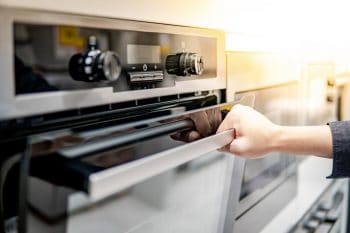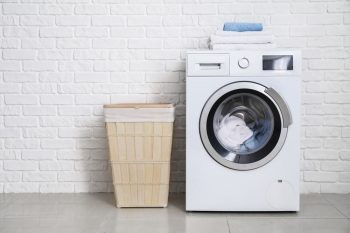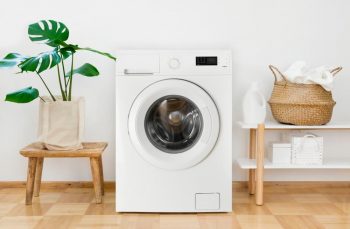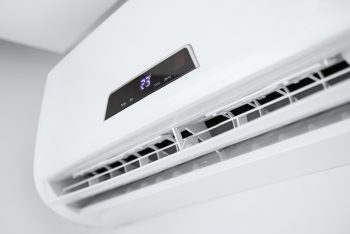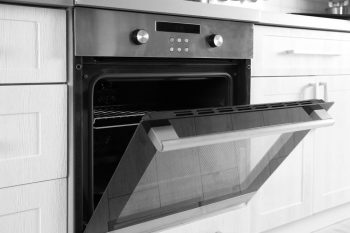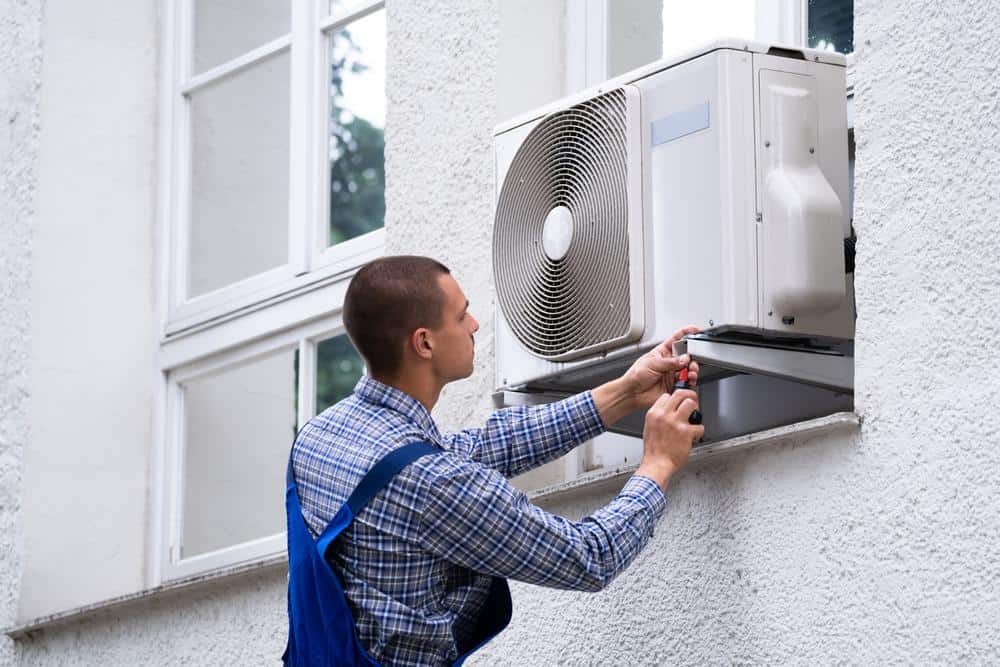
Air conditioning is a staple in many homes and businesses worldwide, offering comfort and improving living conditions. But what exactly is an air conditioner? How does it work, and what should you consider when purchasing one? This comprehensive guide will answer these questions and more.
An air conditioner is a system that cools down a space by removing heat and transferring it outside. It works through a cooling process involving a refrigerant that absorbs heat from the room and releases it outside. This process involves key components like the evaporator, compressor, condenser, and expansion valve. Air conditioners are essential parts of HVAC systems and come in various types, each designed for specific spaces and purposes.
Definition of an Air Conditioner
An air conditioner is a system designed to cool down a space by removing heat and transferring it to an outside area. This process helps achieve a more comfortable indoor environment by controlling the temperature and humidity of the air. Air conditioners are key components of HVAC (Heating, Ventilation, and Air Conditioning) systems, which focus on home temperature control to maximize comfort and livability in a space.
The Working Mechanism of an Air Conditioner
Air conditioners operate based on a cooling cycle involving a refrigerant, a specialized substance that absorbs heat from the room and releases it outside. The cooling process consists of four main components:
- Evaporator: This component absorbs heat from the indoor air, causing the refrigerant to evaporate into a gas.
- Compressor: Located in the outdoor unit, the compressor pressurizes the refrigerant gas, increasing its temperature and pressure.
- Condenser: Also located outside, the condenser releases the heat absorbed by the refrigerant to the outdoor air, causing the refrigerant to condense back into a liquid.
- Expansion Valve: This component regulates the flow of liquid refrigerant into the evaporator, reducing its pressure and temperature to absorb more heat.
Types of Air Conditioners
There are various types of air conditioners available in the market, each designed for specific spaces and purposes. These include central air conditioners, ductless mini-splits, window air conditioners, portable air conditioners, floor-mounted air conditioners, smart air conditioners, geothermal air conditioning systems, hybrid/dual fuel air conditioners, and evaporative coolers.
Factors to Consider When Purchasing an Air Conditioner
When purchasing an air conditioner, consider the type of air conditioner, room size, energy efficiency, noise level, installation and maintenance, features, warranty, budget, and Energy Star certification. Each of these factors plays a crucial role in determining the best air conditioner for your needs.
Maintenance and Cleaning of an Air Conditioner
To maintain and clean an air conditioner effectively, replace or clean filters regularly, clean the coils, straighten the fins, clean the condensate drain, inspect and clean the outdoor unit, check refrigerant levels, inspect ductwork, and schedule professional maintenance.
Common Air Conditioner Problems and Solutions
Common problems with air conditioners include the AC running constantly, not turning on, not providing cool air, hot air blowing out, refrigerant leaking, the unit turning on and off frequently, uneven temperature distribution, the air conditioner tripping the circuit breaker repeatedly, a frozen evaporator coil, and strange noises coming from the unit.
Latest Advancements in Air Conditioning Technology
Advancements in air conditioning technology include smart HVAC systems, variable speed fans and compressors, advanced air filtration and air ionization, energy recovery ventilation, renewable energy integration, thermally driven air conditioning, desiccant-based evaporative cooling systems, ductless HVAC systems, noise reduction technologies, and predictive maintenance.
Eco-Friendly and Energy-Efficient Air Conditioners
Eco-friendly and energy-efficient air conditioner options include Energy Star-certified air conditioners, air source heat pumps, ductless mini-splits, smart thermostats, geothermal air conditioners, solar-powered air conditioners, and air conditioners that use eco-friendly refrigerants.
Main Components of an Air Conditioner
The main components of an air conditioner include the evaporator coil, condenser coil, compressor, and expansion valve. These components work together to absorb heat from the indoor air and release it outside, creating a cooler and more comfortable indoor environment.
Understanding how an air conditioner works, the different types available, and how to maintain one can help you make an informed decision when purchasing an air conditioner and ensure it operates efficiently for years to come. Remember, an air conditioner is an investment in your comfort and well-being, so take the time to do your research and choose the right one for your needs.
Frequently Asked Questions
What is the difference between a central air conditioner and a ductless mini-split?
A central air conditioner cools the entire house using a system of ducts to distribute cool air, while a ductless mini-split has an outdoor unit and one or more indoor units that cool specific areas of the house. Ductless systems are ideal for homes without existing ductwork or for room additions where extending ductwork is not feasible.
How often should I clean or replace the filters of my air conditioner?
It’s recommended to clean or replace your air conditioner filters every 1-2 months during the cooling season. If your environment is dusty or you have pets, you might need to do it more frequently.
What is the purpose of the Energy Star certification on an air conditioner?
The Energy Star certification indicates that the air conditioner meets or exceeds energy efficiency guidelines set by the U.S. Environmental Protection Agency. Energy Star-certified air conditioners use less energy, save money on utility bills, and help protect the environment.
What is a smart air conditioner?
A smart air conditioner is a device that can be controlled and monitored remotely using a smartphone, tablet, or voice-controlled home automation system. These air conditioners can adjust to your habits, are more energy-efficient, and provide convenience and comfort.
What is a refrigerant leak and how can it be fixed?
A refrigerant leak happens when the cooling fluid in your air conditioner, known as refrigerant, escapes from the system. This can lead to a decline in performance and efficiency and can be harmful to the environment. If you suspect a refrigerant leak, it’s best to contact a professional HVAC technician to diagnose and repair the issue.

